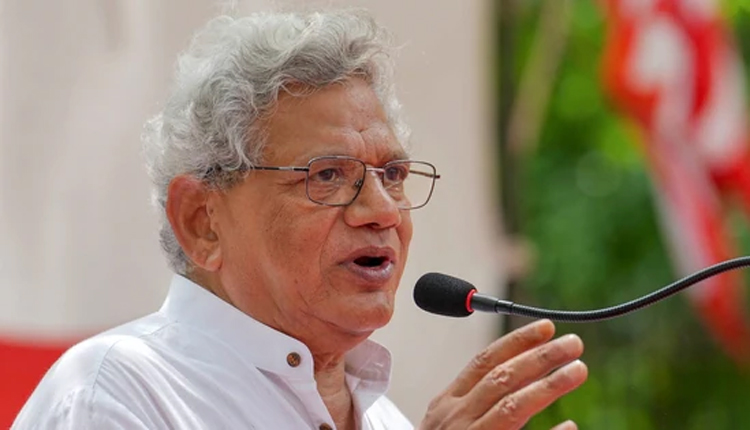New Delhi: The death of Sitaram Yechury has sparked a leadership race within the Communist Party of India (Marxist) [CPM] as it faces the challenge of appointing a new General Secretary. This marks the first time in the party’s history, since its founding in 1964, that a General Secretary has passed away while in office. The party now finds itself navigating uncharted territory, grappling with constitutional protocols and the election process to fill this crucial role.
Under the CPM’s constitution, the General Secretary is elected during the party’s National Central Committee meeting. However, with the next scheduled meeting still nine months away, questions are being raised about whether the party will need to amend its constitution to expedite the process.
Constitutional Complications and Possible Solutions
Article 15(5) of the CPM Constitution stipulates that the Central Committee has the authority to elect the General Secretary, a process usually conducted at the All India Congress meeting. At this gathering, members of the Politburo are also elected to support the General Secretary in their duties. Traditionally, all elected General Secretaries have been members of the Politburo, a trend Yechury followed when he took over the role in 2015 and was re-elected in 2022.
With the next All India Congress meeting slated for April 2025, two potential paths have emerged for the CPM. The first involves appointing an interim General Secretary from among the Politburo members, though there is no provision for this in the party’s constitution. The second option would be to convene an emergency meeting of the Central Committee to appoint a new General Secretary.
The Candidates in Contention
According to former CPM Politburo member Hannan Mollah, a decision will be made soon as the post of General Secretary cannot remain vacant for an extended period. However, he acknowledges that finding a successor to Yechury is no easy task, given the unique stature he held within the party and the broader democratic movement.
Three names are currently at the forefront of the race, according to CPM insiders. The first is Mohammad Salim, the CPM secretary for West Bengal. A former Lok Sabha MP and articulate speaker, Salim is seen as a potential candidate who could appeal to the minority community, an important consideration given the party’s focus on minority votes since the 2024 Lok Sabha elections. Salim became a Politburo member in 2015.
The second name is MV Govindan, the CPM secretary for Kerala, who took charge of the organisation in 2022. Govindan is considered to be part of the faction led by Kerala Chief Minister Pinarayi Vijayan, with the upcoming assembly elections in Kerala in 2026 adding further significance to his potential candidacy.
Former Tripura Chief Minister Manik Sarkar is also in the running. His candidacy is being considered if the party decides to appoint a General Secretary from outside Bengal or Kerala. Sarkar, known for his clean image and unaligned stance within the CPM factions, could represent a fresh direction for the party.
A Surprising Contender?
However, speculation persists that the party could also opt for a surprising candidate, potentially revisiting the name of former General Secretary Prakash Karat. At 75, Karat has already served three terms from 2005 to 2015, and the CPM constitution currently restricts any Politburo member to three terms as General Secretary. For Karat to be eligible again, the party would need to amend its constitution, requiring the approval of at least two-thirds of the Central Committee members.
The Role and Responsibility of the General Secretary
Within the CPM, the role of General Secretary is considered the pinnacle of the party’s organisational structure. Working closely with the Politburo, the General Secretary is responsible for major policy decisions, election strategies, and shaping the party’s movement. However, the General Secretary does not wield absolute power, as the Politburo and the Central Committee retain the right to veto any decisions made.
Historical Precedents and the Path Ahead
The CPM has faced internal debates over leadership before. Following the party’s defeat in the 2014 Lok Sabha elections, there were calls for Prakash Karat’s resignation, which was accepted at a Central Committee meeting in 2015. While Karat and his supporters favoured appointing strong Left leader Ramachandran Pillai as his successor, a last-minute withdrawal led to the unanimous election of Sitaram Yechury.
As the CPM now stands at another crossroads, the party’s next steps will be closely watched, with any decision likely to have significant implications for its future direction and strategy.



Comments are closed.